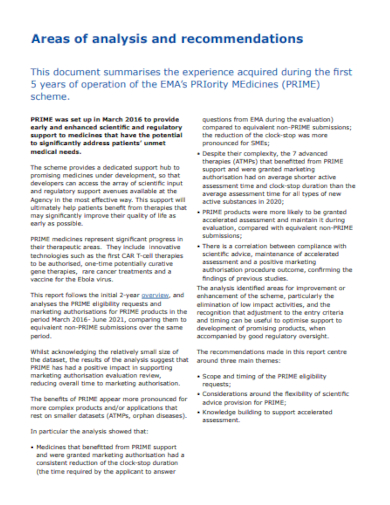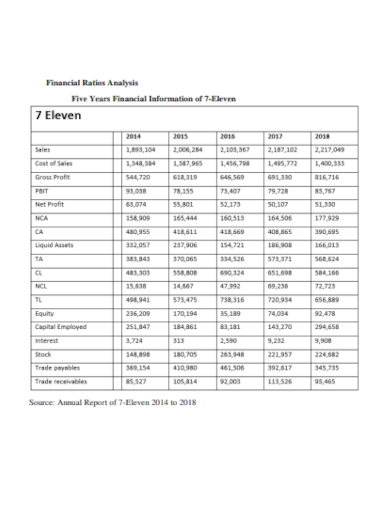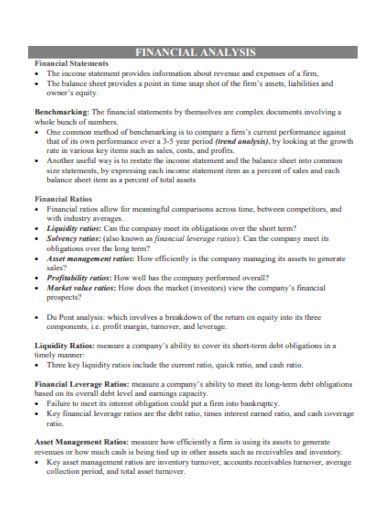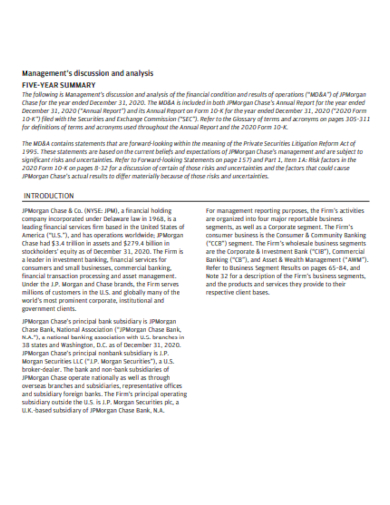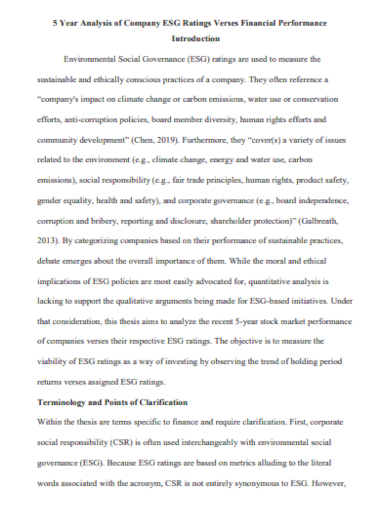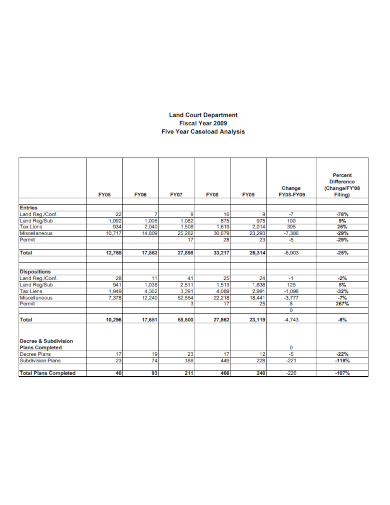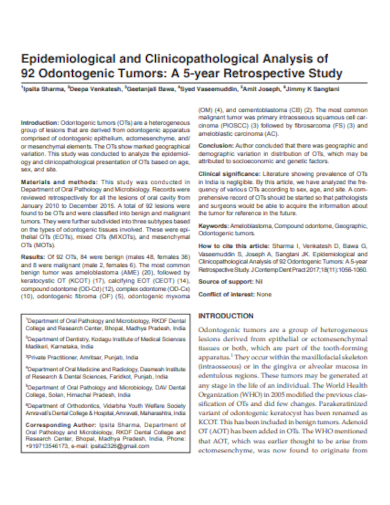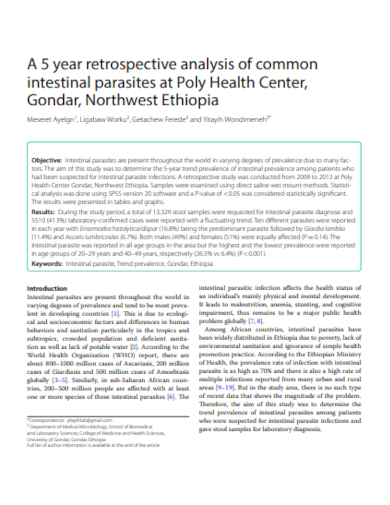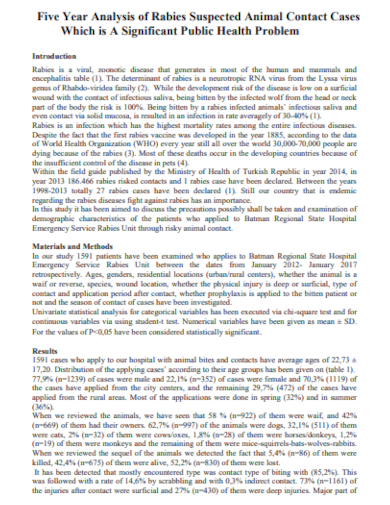The purpose of a 5 year analysis is to gain a better understanding of the long-term performance evaluation, growth, or trends of a business, project investment, or other venture over a period of 5 years. This type of analysis involves looking at various metrics or indicators over the course of 5 years in order to assess the past performance and future prospects or outcomes of the thing being analyzed.
10+ 5 Year Analysis Samples
1. 5 Year Operation Analysis
2. 5 Year Financial Ratios Analysis
3. 5 Year Financial Statement Analysis
4. 5 Year Management Analysis
5. 5 Year Company Analysis
6. 5 Year Plan Analysis
7. 5 Year Caseload Analysis
8. 5 Year Study Analysis
9. 5 Year Longitudinal Analysis
10. 5 Year Retrospective Analysis
11. 5 Year Case Analysis
What is 5 Year Analysis?
A review or evaluation of something, often a company business or investment, for a period of five years is referred to as a five-year analysis. To have an understanding of the performance, growth, or trends of the thing that is being analyzed, it is necessary to examine a variety of metrics or indicators for five years. To get a better knowledge of the long-term prospects or outcomes of the thing being analyzed and to make informed decisions based on that understanding, a five-year analysis is performed as part of the aim of the analysis.
How To Make a 5 Year Analysis?
There are many different approaches to performing a 5 year analysis, and the specific metrics or indicators that are examined will depend on the nature of the thing being analyzed and the business goals of the analysis. Some common metrics that might be included in a 5 year analysis include financial performance indicators such as revenue projection, profitability, and return on investment, as well as non-financial metrics such as customer satisfaction, market share, and employee retention. There are a few key steps to follow when making a 5 year analysis:
Step 1- Define the Scope and Purpose
The first step in making a 5 year analysis is to define the scope and purpose of the analysis. This involves identifying the thing being analyzed (e.g., a business, investment, market, etc.), the period being analyzed (5 years), and the specific goals or objectives of the analysis.
Step 2- Gather Data
The next step is to gather data and information about the thing being analyzed. This may involve collecting financial statements, market research reports, customer satisfaction data, and other relevant data. It is essential to gather data from a variety of sources to get a comprehensive view of the thing being analyzed.
Step 3- Analyze the Data
Once you have collected the necessary data and information, the next step is to analyze it. This may involve looking at key financial and non-financial metrics such as revenue, profitability, market share, customer satisfaction, and employee retention. It may also include comparing the data to industry benchmarks or trends to understand the performance of the thing being analyzed in the context of its industry or market.
Step 4- Make Conclusion
Based on your analysis, you can make conclusions about the performance, growth, or trends of the thing being analyzed. You can also use this information to recommend future actions or strategies.
What metrics are typically included in a 5 year analysis?
The specific metrics included in a 5 year analysis will depend on the nature of the thing being analyzed and the goals of the analysis.
How can a 5 year analysis be used to make informed decisions?
A 5 year analysis can provide valuable insights and data that can be used to make informed decisions about the future of a business or investment.
How can a 5 year analysis be used to plan for the future?
A 5 year analysis can provide valuable data and insights that can be used to develop strategies and plans for future growth and success.
Overall, making a 5 year analysis involves gathering and analyzing data in order to understand the past performance and future prospects of a business or investment, and using that understanding to make informed decisions and plan for the future.
Related Posts
FREE 10+ Fishbone Root Cause Analysis Samples in PDF
FREE 11+ Cost Volume Profit Analysis Samples & Templates in PDF | MS Word
FREE 6+ Corporate Portfolio Analysis Samples in PDF
FREE 10+ Fault Tree Analysis Samples in PDF
FREE 10+ Comp Analysis Samples in PDF
FREE 10+ Fishbone Analysis Samples in PDF
FREE 10+ Individual Swot Analysis Samples in PDF
FREE 10+ Benefit Costs Analysis Samples in PDF
FREE 10+ Job Hazard Analysis Samples in PDF
FREE 10+ Primary Source Analysis Samples in PDF
FREE 10+ Critical Path Analysis Samples in PDF
FREE 10+ Competition Analysis Samples in PDF
FREE 10+ Activity Hazard Analysis Samples in PDF
FREE 10+ Risk Benefit Analysis Samples in PDF
FREE 10+ SEO Competitor Analysis Samples in PDF

